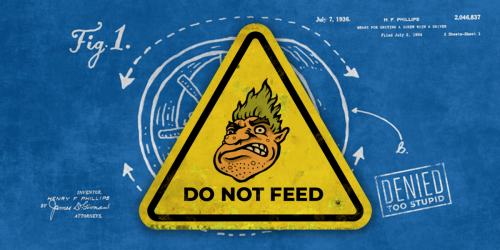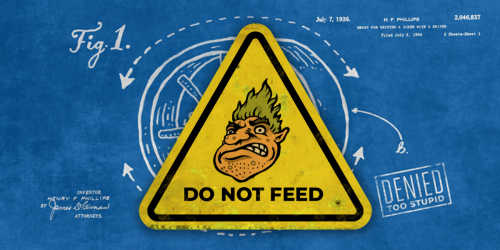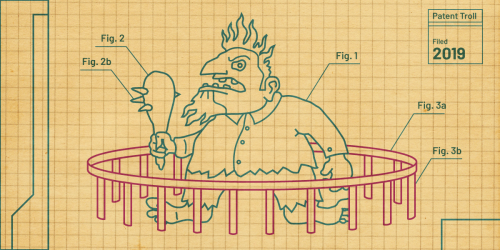Representative Ted Deutch (D-FL) introduced a new transparency bill last week called the End Anonymous Patents Act (H.R. 2024, PDF)—the third piece of legislation in the last year to take on the problem of patent trolls.
The bill sets out to solve what Professor Colleen Chien refers to as the "Who Owns What" problem: we currently don't have an effective way of confirming who owns a particular patent, nor do we know what patents a particular person or company owns. A combination of poor record-keeping infrastructure and practices, as well as scheming businesses that transfer patent ownership to shell companies, has resulted in a hazy patent system where the lack of transparency has become a competitive tool. Rep. Deutch's bill provides a welcome fix to a legitimate problem with patent transparency, but repairing one component still leaves us with a broken machine. Real patent reform must be bigger.
The law already requires parties to file notice when a patent's ownership is transferred at the Patent Office, but this bill would put real teeth in these provisions (which are often ignored) by making sure a patentee cannot collect damages if they had failed to meet this requirement. The term "real party in interest" means the person or entity that would benefit from a lawsuit; this bill would require real parties in interest to be disclosed to the Patent Office, including disclosure of "any entity that has the legal right to enforce the patent through an infringement action." For example, the patent troll Intellectual Ventures notoriously hides behind more than 2,000 shell companies. This shell game allows parties who benefit from settlements and licenses to remain secret the whole time, and such companies have the ability to hide until an infringement case passes their way.
Currently, the patent system's structure makes it nearly impossible to know which patent belongs to what company. An excellent study by Tom Ewing and Robin Feldman called "The Giants Among Us" attempts to map out Intellectual Ventures' thousands of shell companies to great difficulty and incomplete success. This doesn't make any sense. The patent system relies on what's known as the "patent bargain," an exchange of exclusive rights for an invention in exchange for public disclosure about the invention. This stems straight from the Constitution, which gives the government the ability to "promote the progress of science and useful arts" while also securing rights for inventors. Navigating the current patent system in a way that actually promotes progress requires an awareness of the competitive landscape. But right now, knowing who owns what is far from easy.
All of this patent subterfuge—coupled with a system that promotes such schemes—has created a state of play where litigation is favored over competition.
The Patent Office's record-keeping problem is a known one, and there have been multiple solutions put forth to fix it. EFF's Defend Innovation campaign, which includes seven proposals that provide crucial fixes to the patent system, features a separate fix that includes the disclosure of not only patent ownership records but also licenses (barring relevant trade secrets). That being said, Rep. Deutch's End Anonymous Patents bill provides a necessary step towards transparency in the patent system.
With Rep. Deutch's bill, Sen. Schumer's Patent Quality Improvement Act, and Reps. DeFazio's and Chaffetz' SHIELD Act, there are now three proposed fixes to the patent troll problem. While we should support these patches with full force, let's take advantage of this renewed interest in overhauling the patent system to tackle the larger issues that have led to the problems we're seeing today.







